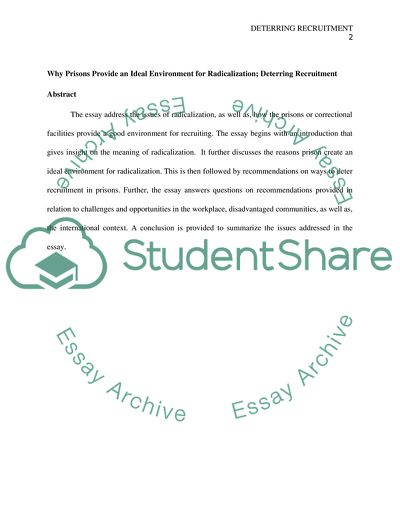Cite this document
(Why Prisons Provide an Ideal Environment for Radicalization: Deterring Recruitment Report Example | Topics and Well Written Essays - 1250 words, n.d.)
Why Prisons Provide an Ideal Environment for Radicalization: Deterring Recruitment Report Example | Topics and Well Written Essays - 1250 words. https://studentshare.org/social-science/1860155-why-prisons-provide-an-ideal-environment-for-radicalization-detering-recruitment
Why Prisons Provide an Ideal Environment for Radicalization: Deterring Recruitment Report Example | Topics and Well Written Essays - 1250 words. https://studentshare.org/social-science/1860155-why-prisons-provide-an-ideal-environment-for-radicalization-detering-recruitment
(Why Prisons Provide an Ideal Environment for Radicalization: Deterring Recruitment Report Example | Topics and Well Written Essays - 1250 Words)
Why Prisons Provide an Ideal Environment for Radicalization: Deterring Recruitment Report Example | Topics and Well Written Essays - 1250 Words. https://studentshare.org/social-science/1860155-why-prisons-provide-an-ideal-environment-for-radicalization-detering-recruitment.
Why Prisons Provide an Ideal Environment for Radicalization: Deterring Recruitment Report Example | Topics and Well Written Essays - 1250 Words. https://studentshare.org/social-science/1860155-why-prisons-provide-an-ideal-environment-for-radicalization-detering-recruitment.
“Why Prisons Provide an Ideal Environment for Radicalization: Deterring Recruitment Report Example | Topics and Well Written Essays - 1250 Words”. https://studentshare.org/social-science/1860155-why-prisons-provide-an-ideal-environment-for-radicalization-detering-recruitment.


